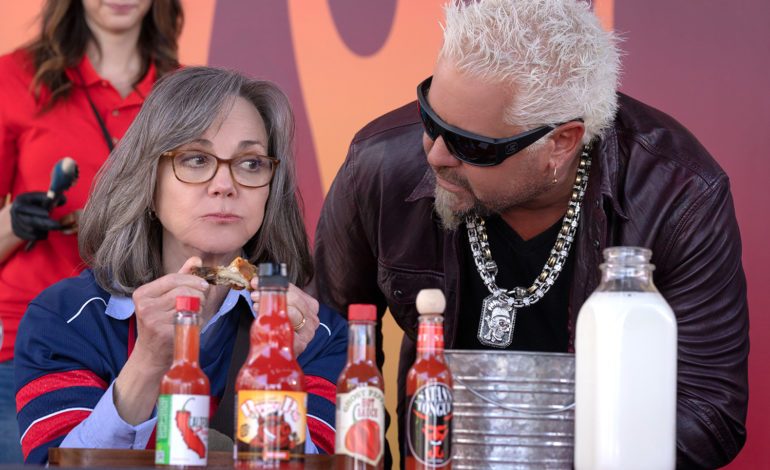

Legendary actress Sally Field is up for the SAG Life Achievement Award on Feb. 26. “It’s my tribe”, she talks of her fellow actors. “It’s the group I most wanted to be respected by and to be included in, and that means a lot to me.” Busy with promotional jobs for her newest film, 80 for Brady, it’s no wonder she hasn’t written her acceptance speech.
Field will be joining Hollywood legends, Robert De Niro, Sidney Poitier, and Rita Moreno who all previously won the prestigious award.
In an interview with Variety, Field spoke about her career, what it was like working with Lee Strasberg, and being an avid sports fan.
Speaking about her role in 80 for Brady, Field had this to say:
“So much of what there is on the screen is us having a good time. It was hard for them to make us shut up long enough to shoot. There were a lot of hours and a lot of physicality, but it was just endless banter between all of us enjoying each other’s company.”
What does it mean to see older women on screen with the Brady film? “There are so few films that are respectfully done where the character is looking to fix their marriage, or what’s wrong with their children or supporting the grandkids, or finding a new husband. Women and older women are so much more than men and the children in their lives. I’m also a huge sports fan and the friendship of what this is about and circling around the arena of football respectfully represents so much of what older women are. I loved being a part of that.
I would love to think that this would be a movie where they actually go to the movies again. I rarely go to the movies anymore because of the pandemic. But I went the other day to see my son’s (screenwriter Peter Craig) movie, he was a writer on “Top Gun: Maverick” and it just was so much fun. I sat there with my granddaughter, and we had popcorn. You could feel the excitement and how when you see a good movie like “Top Gun: Maverick”, it elevates the experience because you’re all watching it together.”
Working with Lee Strasberg changed the actress’ life and put her on the map.
“When I was 12, there was a drama department in school, and it was vitally important to my life. I never left it. I had a very hard time — and had to go to night and summer school to take the classes that I didn’t go to. I wasn’t cutting class, but I was always in drama. But I had a love for something, and that was drama.
Years later, during the first season of The Flying Nun, my dear friend Madeleine Sherwood, told me [about Strasberg] and to get [to his class] on a Wednesday night, and that was the beginning of the Actors Studio, and I didn’t leave for a long time working, and I was studying with Lee, ultimately. It totally changed it, because it was finally getting to a place where I could learn the craft that I so wanted to learn.”
Learning under Strasberg was quite the experience for Field.
“He was one of the best acting teachers. By the time I performed my first scene for Lee, I had learned early on in my life how to disassociate from that kind of adrenaline of nerves into focus. I’m sure I was terrified, but I didn’t feel it, all it was to me was this unit of tremendous focus. Through Lee, I learned how to use that focus on how to complicate a character, how to find a character, how to use yourself, how to walk away from yourself, and how to harness yourself.”
How does the actress say yes to a script? “It’s something intangible. It’s something that blows my skirt up and flutters inside.” So does she watch her old films? “No, I don’t. If it’s on and I’m turning the channel, I could watch for two seconds and then turn it off. I don’t want to go backward.”
Field would love to work with Cary Grant but doesn’t think it will happen. “I’m always saying to my sons, who are writers, ‘Why don’t you guys write a thriller?’ I want to do a thriller, but it’s about the actual project and not necessarily the genre.”
